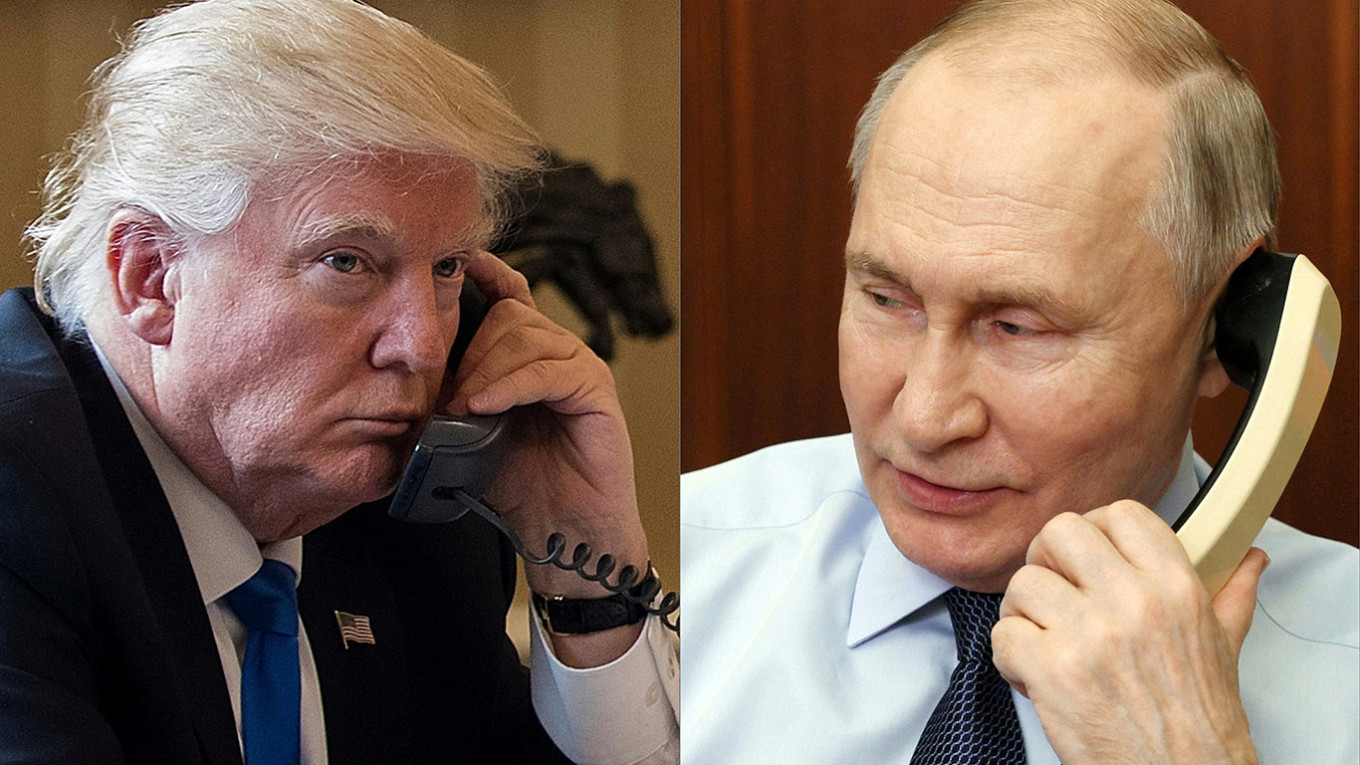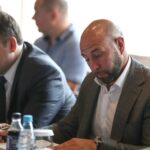Russian President Vladimir Putin informed U.S. President Donald Trump on Wednesday that he would need to respond to notable Ukrainian drone assaults on Russia’s fleet of nuclear-capable bombers, as well as to a lethal bridge bombing that Moscow attributes to Kyiv.
As the conflict in Ukraine escalates, following nearly four months of negotiations and threats aimed at both Moscow and Kyiv by Trump—who asserts his desire for peace after over three years of the most severe conflict in Europe since World War II—the situation grows increasingly tense.
After Ukraine targeted bridges and attacked Russia’s fleet of nuclear-capable bombers in Siberia and the far north, Putin expressed skepticism about the intentions of Ukraine’s leadership regarding peace.
Following a conversation with top ministers about the attacks in Moscow, Trump announced he had a 75-minute phone call with Putin, during which they addressed the Ukrainian assaults and the situation in Iran.
“We talked about Ukraine’s attack on Russia’s grounded aircraft and various assaults happening on both sides. It was a constructive discussion, but it is not one that will immediately bring about peace,” Trump shared on social media.
In recent weeks, Russia has launched several significant aerial strikes against Ukraine.
“President Putin clearly stated that he would need to respond to the recent attacks on the airfields,” Trump remarked, expressing hope that Putin could assist in U.S. negotiations with Iran regarding the country’s nuclear ambitions.
Trump conveyed his belief that Putin shares Washington’s view that Iran “must not possess a nuclear weapon,” and criticized Tehran for delaying decisions related to the negotiations.
Although Trump has generally been quiet regarding the Ukrainian strikes on Russian bombers—central to Russia’s nuclear capabilities—Moscow has insisted that the U.S. and the U.K. do more to restrain Ukraine.
According to the Kremlin, Trump mentioned to Putin that Washington was not informed about the Ukrainian attacks in advance. His envoy for Ukraine indicated that the risk of escalation in the war is “increasing significantly” following these strikes.
As the two leading nuclear powers, Russia and the U.S. together control approximately 88% of the world’s nuclear arsenal, each possessing three avenues for nuclear strike: strategic bombers, land-based intercontinental ballistic missiles, and submarine-launched ballistic missiles. Any attack on any component of this “triad” is seen as a serious escalation.
In some of his most aggressive comments recently on peace prospects, Putin stated on Wednesday that the bridge bombings targeted civilians and charged that the Ukrainian government functions as a “terrorist organization,” backed by outside forces that are becoming “accomplices in terrorism.”
“The current regime in Kyiv shows no interest in peace whatsoever,” Putin remarked during a meeting with senior officials. “What is left to discuss? How can we negotiate with those who rely on terrorism?”
Ukraine has refrained from commenting on the bridge attacks, maintaining that it does not target civilians, a claim echoed by Russia, though civilians have tragically lost their lives on both sides.
Kyiv similarly claims that Moscow is not genuinely interested in peace, pointing to Russia’s opposition to an immediate ceasefire. Russia insists that specific conditions must be satisfied first.
Putin notably did not address the bomber assaults, which occurred shortly before direct peace talks were set to take place in Istanbul, where Russia presented what the U.S. has described as “maximalist” demands.
Before Putin’s comments, other Russian officials indicated that military options remained “on the table” in response to Ukraine’s deep strikes within Russia, further accusing the West of involvement.
“We call on London and Washington to respond in ways that would prevent further escalation,” Russian Deputy Foreign Minister Sergei Ryabkov was quoted by Interfax as saying. Ryabkov oversees U.S. relations and arms control issues.
Officials from Britain and the U.S. have stated they were not aware of the weekend’s attacks on Russian nuclear-capable long-range bombers prior to them occurring. The White House has confirmed that Trump was not informed ahead of the Ukrainian drone attack.

